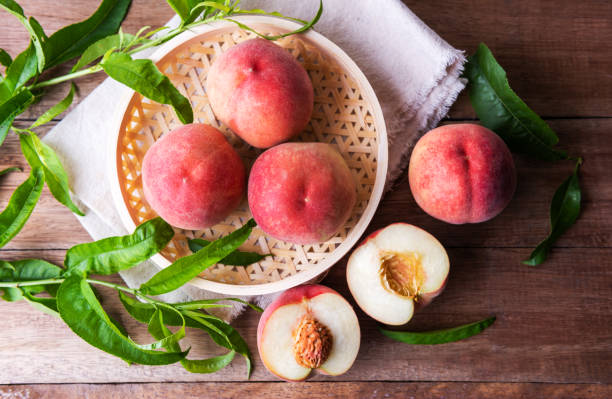Entertainment
Consumer Choices Spark Debate Over New Zealand Peaches’ Future

A recent discussion led by Heather du Plessis-Allan on TVNZ has ignited a debate about consumer preferences for locally produced goods, specifically focusing on Wattie’s peaches from Hawke’s Bay. This conversation follows Wattie’s plea for support of New Zealand growers, raising the question of whether consumers genuinely prioritize buying local products over cheaper imported alternatives.
The conversation began when TVNZ highlighted the price difference between Wattie’s peaches, priced at $3.90 per can, and their competitor Pam’s peaches, which are available for just 99 cents. This price disparity has led to discussions about the viability of a “Buy New Zealand Made” campaign. Consumer behavior suggests that many shoppers are more inclined to choose the lower-priced option rather than support local growers, even when aware of the economic implications.
Du Plessis-Allan expressed empathy for the Hawke’s Bay peach growers facing contract losses with Wattie’s. She acknowledged the emotional toll this situation takes on local farmers but also emphasized a harsh economic reality: consumers often prioritize cost over origin. With rising living costs, many shoppers are unlikely to pay a premium for New Zealand-made products, especially when cheaper alternatives are readily available.
According to Pak’nSave’s online store, the significant price gap raises questions about who would opt for the more expensive Wattie’s peaches. Du Plessis-Allan challenged the notion that consumers would pay a substantial markup for local products, suggesting that only a small fraction might consider spending an additional 10 to 40 cents more, not the nearly fourfold increase represented by the price of Wattie’s offering.
The broader context of New Zealand’s manufacturing landscape adds weight to these discussions. The country has witnessed a steady decline in local manufacturing, with businesses closing regularly, such as the recent shutdown of the Carter Holt Harvey mill in Tokoroa. These closures serve as reminders of the challenges facing local industries and the ongoing struggle to compete with international imports.
Du Plessis-Allan pointed out that, despite being responsible for most household shopping, she often remains unaware of the origins of the products she buys. This sentiment reflects a pervasive disconnect between consumer awareness and purchasing decisions, particularly regarding canned goods and dried foods. While many consumers know where their meat comes from, awareness about the source of other food items appears to be lacking.
As Wattie’s navigates this challenging landscape, the company’s recent statement indicates a recognition of the difficulties in encouraging consumers to favor local products. The decision to cut contracts with Hawke’s Bay growers suggests that even the company understands the uphill battle it faces in promoting New Zealand-made peaches.
In conclusion, the debate surrounding the preference for local versus imported products highlights a complex interplay of economics and consumer behavior. While sentiment for local products is admirable, the reality of consumer choices often leads to a preference for affordability over origin, raising questions about the future of local industries in New Zealand.
-

 Sports2 months ago
Sports2 months agoNetball New Zealand Stands Down Dame Noeline Taurua for Series
-

 Entertainment2 months ago
Entertainment2 months agoTributes Pour In for Lachlan Rofe, Reality Star, Dead at 47
-

 Entertainment3 weeks ago
Entertainment3 weeks agoNew ‘Maverick’ Chaser Joins Beat the Chasers Season Finale
-

 Sports2 months ago
Sports2 months agoSilver Ferns Legend Laura Langman Criticizes Team’s Attitude
-

 Politics4 weeks ago
Politics4 weeks agoNetball NZ Calls for Respect Amid Dame Taurua’s Standoff
-

 Entertainment2 months ago
Entertainment2 months agoKhloe Kardashian Embraces Innovative Stem Cell Therapy in Mexico
-

 World3 months ago
World3 months agoPolice Arrest Multiple Individuals During Funeral for Zain Taikato-Fox
-

 Sports3 months ago
Sports3 months agoGaël Monfils Set to Defend ASB Classic Title in January 2026
-

 Entertainment1 month ago
Entertainment1 month agoTyson Fury’s Daughter Venezuela Gets Engaged at Birthday Bash
-

 Sports1 month ago
Sports1 month agoHeather McMahan Steps Down as Ryder Cup Host After Controversy
-

 World1 week ago
World1 week agoSevere Winds Hit New Zealand, Over 100 Flights Canceled
-

 Entertainment1 month ago
Entertainment1 month agoTyson Fury’s Daughter Venezuela Gets Engaged at Birthday Bash



















